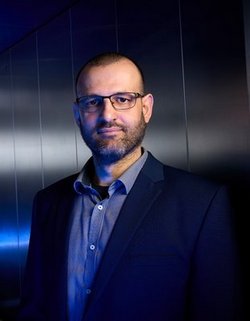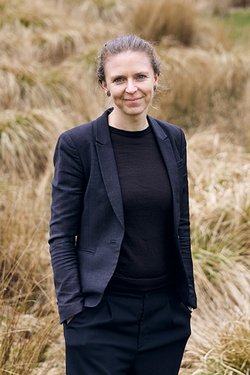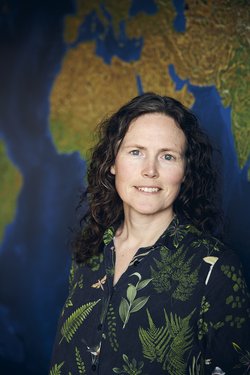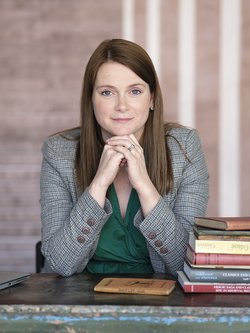Every year, the Aarhus University Research Foundation presents the Victor Albeck Award, which is named after one of the university’s founders.
Sign up for the 2024 Awards (no later than Friday 24 May)
Professor Alexandros Iosifidis is receiving the Victor Albeck Award for his pioneering research on artificial intelligence, which he is helping to benefit even more people – in a responsible way.
Alexandros Iosifidis’ research enables machines to learn even better and perform tasks even faster. The goal is greater automation within a wide range of application areas.
The Greek-born Professor's research has already been used in a wide range of contexts. He constantly pushes the boundaries of what is possible. He has worked to support older people to live independently in their homes using robotics, he has developed algorithms for the financial sector that can prevent stock market fraud, and he has improved the ability of drones to analyse visual information from the air.
Alexandros Iosifidis is involved in several projects, including the European project PANDORA. In this research initiative, he collaborates with a range of partners to create AI solutions that can make buildings more intelligent. The aim of the project is to make the indoor climate more adaptable to the users’ needs and more comfortable in relation to temperature changes.

Professor of archaeology Mette Løvschal receives the Victor Albeck Award for her innovative research on the relationship between humans and nature.
Professor Mette Løvschal takes us on a journey over thousands of years when she uncovers the history of human-made landscapes. For example, by comparing satellite images, excavations, pollen analyses and much more, she can reveal how humans have created and maintained heathland over millennia.
Her research doesn’t only tell us about the past. It also teaches us about human-made nature today, for example in East Africa, where Mette Løvschal – in collaboration with biologists and anthropologists – has documented how the increased use of fences on common grazing land is causing ecosystems to break down. This research is being applied locally as a planning tool to identify regions where the practice of enclosing land should be prevented in order to preserve animal migration flows.
Mette Løvschal’s interdisciplinary research brings new perspectives into the debate on the green transition, which she thinks would benefit from giving cultural landscapes a louder voice.
Mette Løvschal is employed in a joint position between Aarhus University and Moesgaard Museum and is working to improve research collaboration with the Danish museum world, for example through her membership of the Association of Danish Museum’s archaeological and research committees.
Mette Løvschal has published her research in the Proceedings of the National Academy of Sciences (PNAS), Nature (Scientific Reports), Current Anthropology and World Archaeology, and in 2019 she received an ERC Starting Grant for the project ANTHEA - Anthropogenic Heathlands: The Social Organization of Super-Resilient Past Human Ecosystems.
This year, Professor Mette Løvschal also receives the HM Queen Margrethe II's Science Award.
Hear more and meet Mette i the podcast series "De unge forskere" in the episode Når commons opstår (In Danish only)

Professor of Biology Signe Normand has been awarded the Victor Albeck Award for her ground-breaking research on climate change and nature conservation.
Signe Normand has developed innovative methods to understand how plants are affected by changes in the environment and the climate across space and time. She is one of the few researchers in the world – and the only person in Denmark – who combines special drone and satellite images, known as remote sensing, with the ecological study of growth rings in trees and shrubs. She has led several field expeditions to Greenland and collected unique datasets using this new methodology.
Signe Normand’s research provides an insight into how vegetation and biodiversity change – from the past to the future, from the tropics to the Arctic – seen both through the microscope and from the air. Signe Normand has contributed to demonstrating the complex way in which the annual growth and height of Artic shrubs is changing in line with climate change. She has also developed a model for understanding changes in the distribution of species since the last ice age – and has examined the riddle that, despite spreading for thousands of years, species have still not made their way to all areas with suitable climates.
Signe Normand has an impressive academic publication list and has received the Elite Research Prize and several other national and international awards and grants. She adopts an interdisciplinary approach, builds bridges between subject areas and opinions, and, in 2021, was appointed chairperson of Denmark’s first biodiversity council.
Signe Normand also received the Aarhus University Research Foundation's PhD award in 2011.


Isabelle Torrance began her research career at Aarhus University with a three-year fellowship at AIAS, which has had great success with attracting highly qualified international researchers. Subsequently she took a position at AU as as a professor at the English department, where she has founded the research centre Classical Influences and Irish Culture, which is funded by by an ERC grant she won while at AIAS. Isabelle Torrance’s research group is exploring how classical literature is appropriated in Ireland and linked to contemporary conflicts; her theoretical approach includes post-colonial, multi-linguistic and feminist angles. Part of the project involves building a database that enables new, interdisciplinary research within classical and modern literature. In doing so, Isabelle Torrance is contributing to the development of a new research area: classical reception studies.
Professor Isabelle Torrance was trained as a classical philologist and combines the philological tradition with research into the role played by the classical culture of Antiquity in modern European history.
Isabelle Torrance is an original and productive researcher who has already published seven books and a number of articles. Her ability to create synergy between classical studies and modern history also makes her a sought-after speaker, both in international academic circles and for the the general public.
Further information: